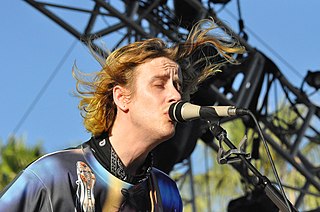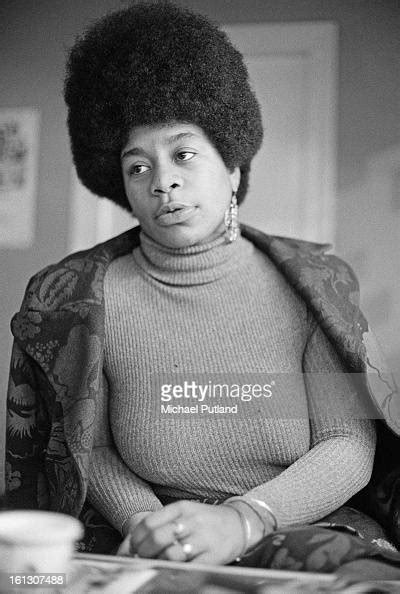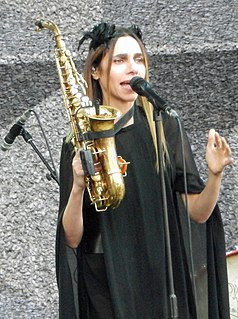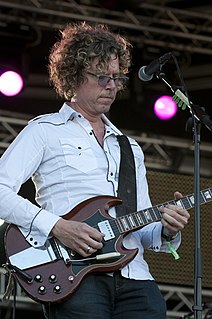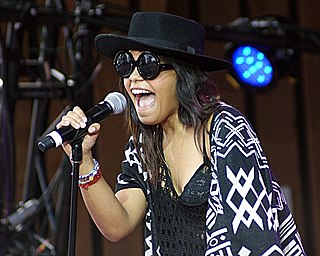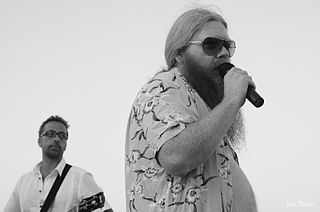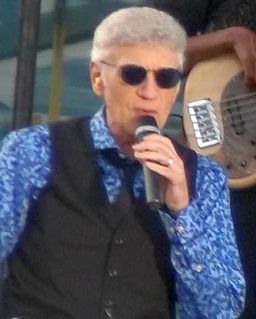A Quote by Christopher Owens
I tend to like to write a song and then think about it for a while. I record a demo of it and then put it away and wait until I've gotten more thoughts on it or get sure exactly how to approach it.
Related Quotes
I have a notebook that I take with me everywhere. I free-write in it when there are situations that I know I can write a song about. I will just start writing everything that I can think of while trying to write some things that are kind of poetic or sound like they could be in a song. Then, after the music is written, I go back and look at my subjects to see which one I think woud go with what music. Then, I formulate it into a melody and get the song.
I don't think that much anymore in terms of 'write a record, record a record, tour a record,' because in my own mind, things have changed, in that I'm just an ongoing artist. I'm not quite sure what the next project needs to be until it presents himself, and then I know. I just follow dutifully while I'm being led.
I'm a morning person because I learned to write my novels while still practicing law. I would get to the office at 6:30 a.m. and write until other people arrived, around 9. Now I still do that. I start at 6:30 or 7, and I'll write until 11, then take an hour off, then work until about 2 p.m. By then my brain has had enough.
You're not going to hit it every single time, and that's why, when I record an album, I do probably close to 50 songs. Each song I record has to get better. If it's not better than the last song that I made, it'll usually linger for a couple of months, and then it'll be put on the backburner, and then there'll be another song that I do, and then it often doesn't make it on the album.
The lyrics seem to follow the music, and that's usually how I write. I write more about what comes out of my mouth while I'm writing the chords, and that seems to work better than filling up notebooks of what I think is really cool poetry, and try to put it on a song. That usually sounds like it's taped on.
I always try to write a song, I never just want to write a record. Originally I was not writing songs for myself. ....And I can say this, most of the people who have recorded my songs are songwriters themselves. ... Even if I don't release it myself, somebody else might hear it and want to record it. When you write a song, it gives it that potential. When you write a song, a song has longevity. ... So I wanted to sing inspirational music, and that's exactly how I approached it-only the words have been changed to declare my relationship with God. Songwriting is my gift from God.
[A]s soon as you try and take a song from your mind into piano and voice and into the real world, something gets lost and it's like a moment where, in that moment you forget how it was and it's this new way. And then when you make a record, even those ideas that you had, then those get all turned and changed. So in the end, I think, it just becomes it's own thing and really I think a song could be recorded a million different ways and so what my records are, it just happened like that, but it's not like, this is how I planned it from the very beginning because I have no idea, I can't remember.
I'm not sure if it's because I'm older and I'm thinking about family more, but I'm trying to set up this thing where I can play in one city for a month, and then write music for a couple months, then play in another city for a month, write music for a month. Just so it's not these two schizophrenic, Jekyll and Hyde kind of things; you don't have to be this monster. You get inspired and you can go write one song from that, and then you go back and play a few shows. If I could've done that in the 90s, I would have.
I never want to record something that I'm not proud of just because I think it might be a big hit. There's no positive about that because if you record a song you hate and it's a big hit, then you're singing a song every night that you hate. And if you record a song that you hate and it isn't a hit, then you sold out for no reason.
Right away, I knew I didn't want to have that look of other guys with long hair and bell-bottom pants, because everybody else had that look. I kind of adopted my boarding-school look, which made me stand out. Then the next thing you know, the first song on my first record is a song called "School Days." It's about going to the boarding school I went to. So then I just started to write about myself. The very first song I ever wrote was about a guy I met in a boatyard that we were working in. So I've always had this thing about sticking to more or less what I knew.
